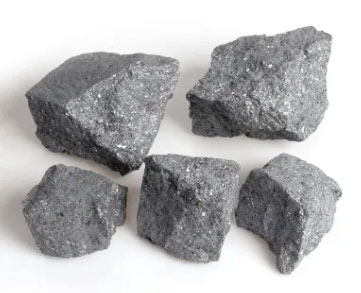
Silicon Calcium Alloy, also known as SiCa, is a vital compound that has gained significant attention for its numerous applications and benefits. This article explores the properties and uses of SiCa, highlighting its role in enhancing performance and efficiency in various industries.
Silicon Calcium Alloy is a composite material consisting of silicon, calcium, and traces of other elements. It is produced through a controlled reaction between silicon and calcium carbide. SiCa is available in different forms, including granules and powder, making it versatile for diverse applications.
SiCa plays a crucial role in the steelmaking process as a powerful deoxidizer and desulfurizing agent. When added to molten steel, SiCa reacts with oxygen and sulfur, removing impurities and improving the quality of the final product. Additionally, SiCa enhances the fluidity and castability of the steel, leading to better overall performance and reduced casting defects.
SiCa is widely used in the aluminum industry to improve the mechanical properties of aluminum alloys. When added to the melt, SiCa refines the grain structure, enhances the strength and ductility of the alloy, and improves its resistance to corrosion and wear. These properties make SiCa a valuable additive in the production of automotive parts, aerospace components, and other aluminum-based products.

SiCa finds extensive use in the foundry industry as an inoculant and nodularizer. Inoculation with SiCa promotes the formation of graphite in cast iron, resulting in improved mechanical properties, such as increased strength and reduced brittleness. Nodularization with SiCa transforms flake graphite into spherical graphite, further enhancing the cast iron's ductility and impact resistance. These benefits make SiCa indispensable in the production of high-quality castings.
SiCa has applications in the chemical industry as a reducing agent and alloying element. It is utilized in the production of various alloys, including ferrosilicon and calcium silicon. These alloys find use in the manufacturing of stainless steel, heat-resistant alloys, and specialty metals. SiCa's ability to modify the properties of these alloys contributes to improved performance and durability in demanding applications.
The versatile applications of Silicon Calcium Alloy highlight its importance and potential for future advancements. Ongoing research and development aim to enhance SiCa's properties, such as grain size control and purity, to meet the evolving demands of different industries. As SiCa continues to prove its efficacy in steelmaking, aluminum production, foundries, and the chemical industry, its utilization is expected to expand further, leading to enhanced performance, increased efficiency, and improved product quality.
In conclusion, Silicon Calcium Alloy plays a crucial role in enhancing performance and efficiency across diverse industries. Its applications in steelmaking, the aluminum industry, foundries, and the chemical industry demonstrate its versatility and importance. With ongoing advancements and its valuable properties, SiCa is set to play an increasingly significant role in shaping the future of these industries.

Write a Message